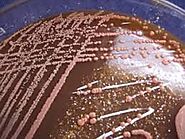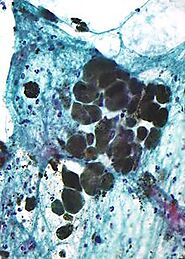-
About
- About Listly
- Community & Support
- Howto
- Chrome Extension
- Bookmarklet
- WordPress Plugin
- Listly Premium
- Privacy
- Terms
- DMCA Copyright
- © 2010-2025 Boomy Labs

 Xoliswa Dearh
Xoliswa Dearh
Listly by Xoliswa Dearh
Melanin is produced in melanocytes. These cells are located in different areas of your body, including: Your hair. The innermost layer of your skin. Please add more details so that I can learn more. Melanin is a substance in your body that produces hair, eye and skin pigmentation. The more melanin you produce, the darker your eyes, hair and skin will be. The amount of melanin in your body depends on a few different factors, including genetics and how much sun exposure your ancestral population had.Vote for your favorite, please!

Black and darker skin tone have larger individual melanin and providing these girls with protection against the sun. Black is beautiful!

Pigment production in the skin is regulated by a pituitary gland peptide hormone called melanocyte-stimulating hormone (MSH). Melanocytes produce and store melanin in organelles called melanosomes in response to MSH secretion. The process by which melanin is created is called melanogenesis

Melanin (/ˈmɛlənɪn/ (listen); from Greek: μέλας, romanized: melas, lit. 'black, dark') is a broad term for a group of natural pigments found in most organisms. Eumelanin is produced through a multistage chemical process known as melanogenesis, where the oxidation of the amino acid tyrosine is followed by polymerization. The melanin pigments are produced in a specialized group of cells known as melanocytes. Functionally, eumelanin serves as protection against UV radiation.

Melanin is responsible for the pigmentation of the skin and hair. It also protects the skin from the sun. Read on to learn more.

Melanin is a pigment that is important for the colour of the skin, hair and eyes in humans. It is vital for its role in protecting the skin from the sun’s UV rays.

Melanin is produced in your skin and has many benefits. It helps protect from UV rays and gives skin its color. We explain what melanin is and its many benefits.
